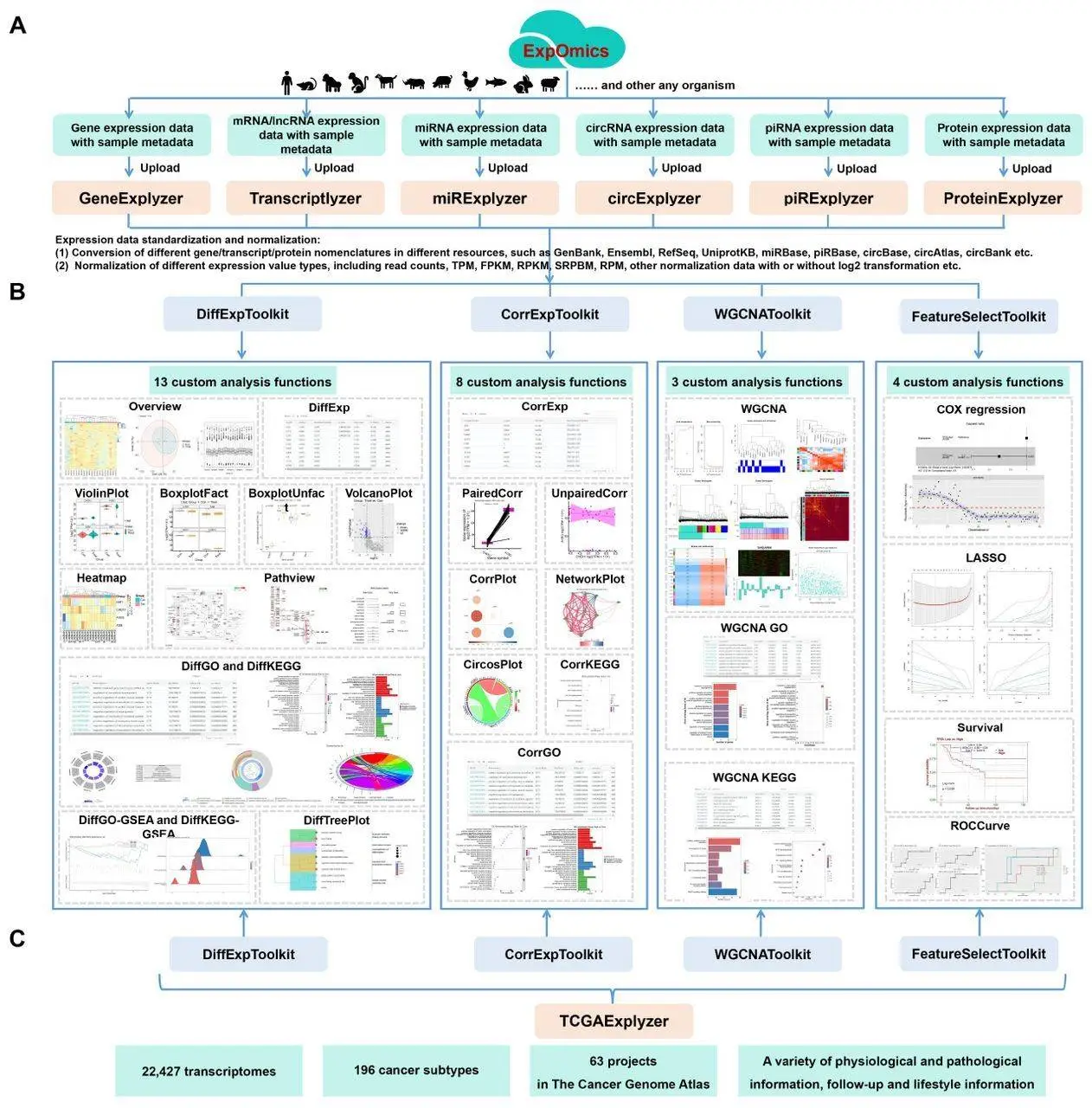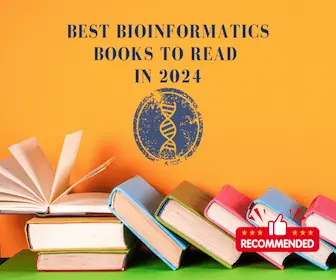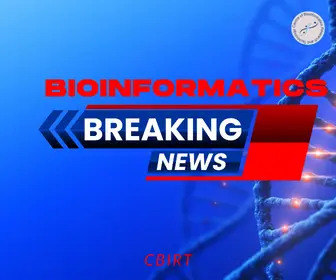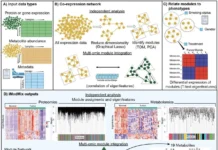Biological research has been in a golden age ever since the advent of high-throughput technologies. We can now probe deeper into living systems than ever by analyzing a symphony of data – multi-omics data. This includes different biological molecules such as genes, proteins, and RNA, all of which are involved in the intricate dance of life. But making sense of this vast sea of information can be quite challenging.
Enter ExpOmics – a game changer in this field. It is an easy-to-use web platform that equips biologists with powerful tools for multi-omics data analysis, even if they do not have extensive programming skills.
Why is Multi-Omics Data Important?
Think about a symphony where each instrument stands for one type of molecule found in living things. You get to know some parts of the music when you understand how one instrument works alone, but the real magic happens if we listen to what all instruments do together. That’s exactly what multi-omics data analysis is all about.
ExpOmics allows researchers to draw a more complete picture of biological processes by studying many data types simultaneously. This integrated approach is crucial for:
- Unraveling complex diseases
- Understanding gene regulation
- Developing personalized medicine
ExpOmics: Your Multi-Omics Analysis Toolkit
ExpOmics includes several tools organized into four complete toolkits and seven user-friendly applications. Here is a taste of what this fantastic kit can do:
Data Analysis Powerhouse
DiffExpToolkit: This tool is used to determine the genes, proteins, or RNAs that have different expressions under various conditions – it’s the foundation of multi-omics analysis.
CorrExpToolkit: Co-expression patterns are analyzed to find out how different molecules interact with each other; such discoveries can hint at possible regulatory mechanisms.
WGCNAToolkit: An approach called Weighted Gene Co-expression Network Analysis (WGCNA) is used to identify groups of genes that tend to be co-expressed together. ExpOmics allows users to employ this method to find hidden patterns of gene regulation.
FeatureSelectToolkit: Some data points are more informative than others. Researchers use FeatureSelectToolkit to choose the most relevant features from their data for further analysis, thus improving accuracy as well as efficiency.
Functional Enrichment Analysis
ExpOmics assists analysts with their interpretation and with examining records. It does this by combining functional enrichment analysis tools, which can be used to find out the most significantly associated biological processes or pathways with different genes that are expressed or differentially expressed RNAs according to them, thus helping researchers connect these dots and understand what their findings mean in terms of function.
Species Agnostic and Data Type Versatile
Let there be no boundaries! Whether you’re working on human beings or any other living thing known so far by science, ExpOmics has your back covered. Apart from that, it also accommodates various types of data like gene expression datasets as well as mRNA/lncRNA/miRNA/circRNA/piRNA/protein datasets (and many more!), which makes this tool genuinely comprehensive indeed.
TCGA Integration
Cancer Genome Atlas (TCGA) is a treasure trove filled with cancer multi-omics information. This resource can easily be tapped into through the integration provided by ExpOmics, thereby enabling its users’ access to potential therapeutic targets for treatment against cancers or identification of biomarkers that may signal early stages when they are still curable.
User-Friendly Interface and Visually Appealing Results
Simple Yet Effective Design: The saying goes, ‘A picture speaks louder than words.’ Complex numbers need simple solutions; hence, ExpOmics has an easy-to-use interface for uploading data sets onto it while still allowing enough room for manipulation during analysis stages.
Benefits to Biologists: An Orchestra of Benefits
ExpOmics enables biologists in various ways:
- Saving Time and Money: Users do not need to learn complicated programming languages or create analysis pipelines. With pre-built tools, researchers can analyze data directly, saving them precious time and resources.
- Facilitating Hypothesis Generation: Exploitation of diverse information and multiple analyses allows investigators to develop new ideas to test through specific experiments supported by ExpOmics.
- Promoting collaboration: This software encourages cooperation between biologists and bioinformaticians. Biologists can run their analyses using the easy-to-use interface, while bioinformaticians can use more advanced functions for deeper exploration.
More than Just Hype: Real-World Situations
ExpOmics is more than just a bunch of fancy tools — it’s a program with wide-reaching practical implications across many areas within biological research.
- Cancer Research: Researchers can find new cancer biomarkers and therapeutic targets through the analysis of multi-omics data from TCGA and other databases, leading to better patient treatment outcomes ranging from effectiveness down to personalization.
- Personalized Medicine: ExpOmics allows scientists to investigate how different molecules interact. This can help them customize medical treatments according to the individual molecular profile of a patient for better-personified therapy plans.
- Drug Discovery: ExpOmics decodes the molecular processes behind diseases, suggesting new drug creation. Researchers can use the system to detect potential drug targets and check their efficiency against novel candidates.
- Understanding Complex Traits: Obesity, diabetes, neurodegenerative diseases, and other complex traits are still puzzling scientists in terms of genetic background and molecular foundations. To this end, researchers need multi-omics data analysis, which provides ExpOmics with the necessary information to find appropriate prevention or treatment methods.
Conclusion: ExpOmics – Catalyst for Biological Discovery
ExpOmics is way more than a mere web platform. It is a catalyst for biological discovery!
By giving biologists easy-to-use tools for multi-omics data analysis, ExpOmics speeds up research and opens up new areas of knowledge about the natural world. As ExpOmics develops further and incorporates state-of-the-art technologies into its systems, it could potentially serve as the foundation of all future biological findings, leading us towards personalized medicine, novel therapeutic approaches, and a greater understanding of life’s symphony.
Are You Prepared to Unleash the Power of Multi-Omics Data?
This resource will make you a skilled conductor in dealing with biological information!
Article Source: Reference Paper | To learn more about what it can do or try using it yourself, visit the Website.
Important Note: bioRxiv releases preprints that have not yet undergone peer review. As a result, it is important to note that these papers should not be considered conclusive evidence, nor should they be used to direct clinical practice or influence health-related behavior. It is also important to understand that the information presented in these papers is not yet considered established or confirmed.
Follow Us!
Learn More:
Anchal is a consulting scientific writing intern at CBIRT with a passion for bioinformatics and its miracles. She is pursuing an MTech in Bioinformatics from Delhi Technological University, Delhi. Through engaging prose, she invites readers to explore the captivating world of bioinformatics, showcasing its groundbreaking contributions to understanding the mysteries of life. Besides science, she enjoys reading and painting.
















